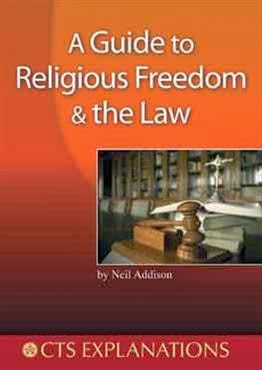The flavour of the case can be derived from the facts set out in the judgment
"Judith H. Kuch, who avers she is an "ordained minister of the Neo-American Church", stands indicted in a seven-count indictment for unlawfully obtaining and transferring marihuana and for the unlawful sale, delivery and possession of LSD.......
Defendant by her motions to dismiss contends that the criminal penalties provided for violation of these Acts may not be applied as to her for several reasons relating in various ways to her basic contention that the laws impinge on her constitutional right in the free exercise of her alleged religion. A hearing was held and testimony and exhibits received in support of Kuch's religious claims........
The Neo-American Church was incorporated in California in 1965 as a nonprofit corporation. It claims a nationwide membership of about 20,000. At its head is a Chief Boo Hoo. Defendant Kuch is the primate of the Potomac, a position analogized to bishop. She supervises the Boo Hoos in her area,,,,,,,
A Boo Hoo is "ordained" without any formal training. He guides members on psychedelic trips, acts as a counselor for individuals having a "spiritual crisis," administers drugs and interprets the Church to those interested.....
the church officially states in its so-called "Catechism and Handbook" .......... "we have the right to practice our religion, even if we are a bunch of filthy, drunken bums." ......
The dividing line between what is, and what is not, a religion is difficult to draw. The Supreme Court has given little guidance. Indeed, the Court appears to have avoided the problem with studied frequency in recent years.......
Subtle and difficult though the inquiry may be, it should not be avoided for reasons of convenience...... Those who seek the constitutional protections for their participation in an establishment of religion and freedom to practice its beliefs must not be permitted the special freedoms this sanctuary may provide merely by adopting religious nomenclature and cynically using it as a shield to protect them ........
Reading the so-called "Catechism and Handbook" of the Church containing the pronouncements of the Chief Boo Hoo, one gains the inescapable impression that the membership is mocking established institutions, playing with words and totally irreverent in any sense of the term. Each member carries a "martyrdom record" to reflect his arrests.
The Church symbol is a three-eyed toad.
Its bulletin is the "Divine Toad Sweat."
The Church key is, of course, the bottle opener.
The official songs are "Puff, the Magic Dragon" and "Row, Row, Row Your Boat."
In short, the "Catechism and Handbook" is full of goofy nonsense, contradictions, and irreverent expressions. There is a conscious effort to assert in passing the attributes of religion but obviously only for tactical purposes. .......
The official seal of the Church is available on flags, pillow cases, shoulder patches, pill boxes, sweat shirts, rings, portable "communion sets" with chalice and cup, pipes for "sacramental use," and the like. The seal has the three-eyed toad in the center. The name of the Church is at the top of the seal and across the bottom is the Church motto: "Victory over Horseshit!".
The Court finds this helpful in declining to rule that the Church is a religion within the meaning of the First Amendment."
A Happy Christmas and New Year to my Reader(s)



